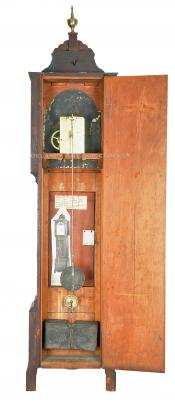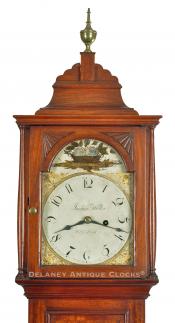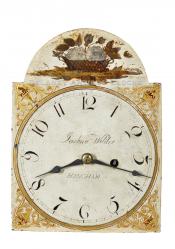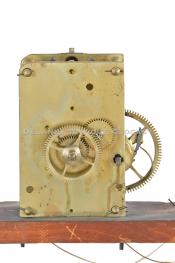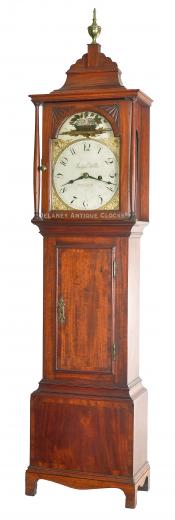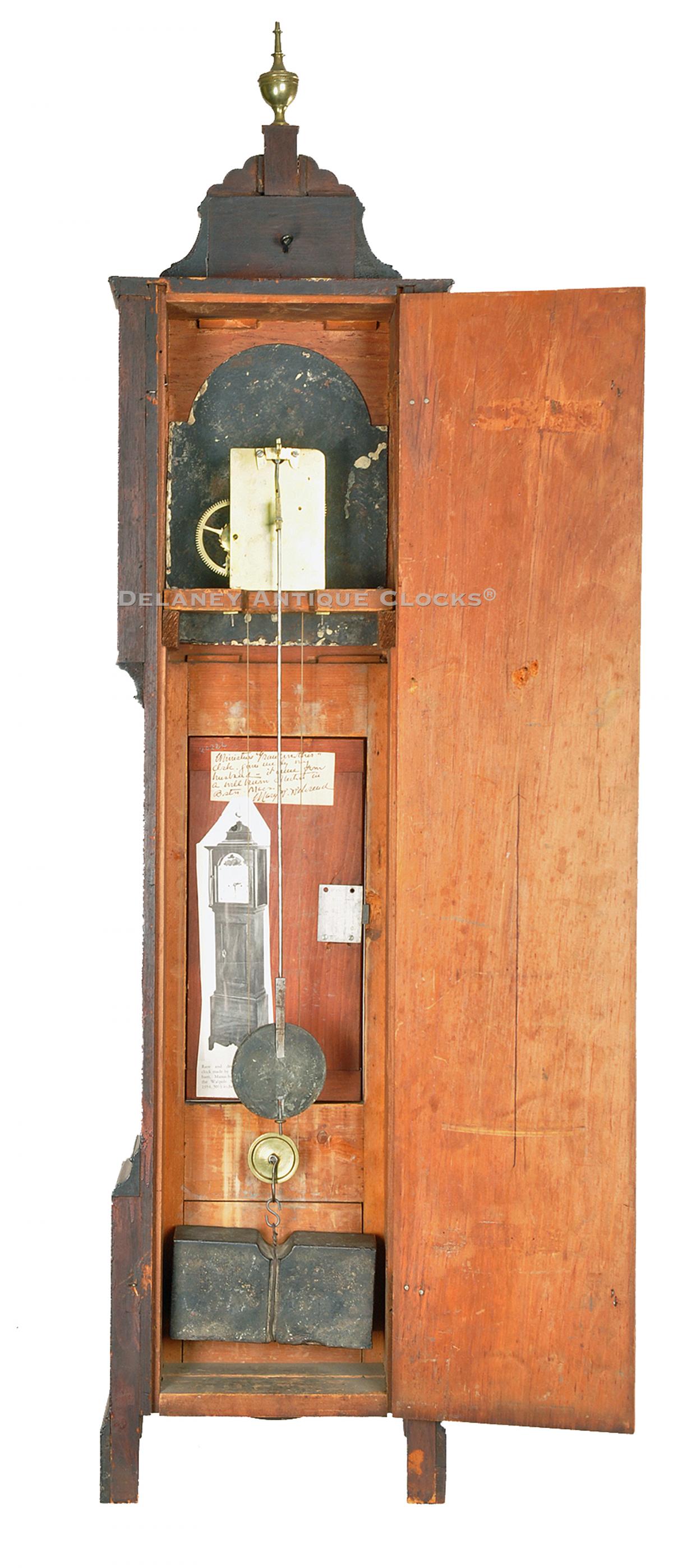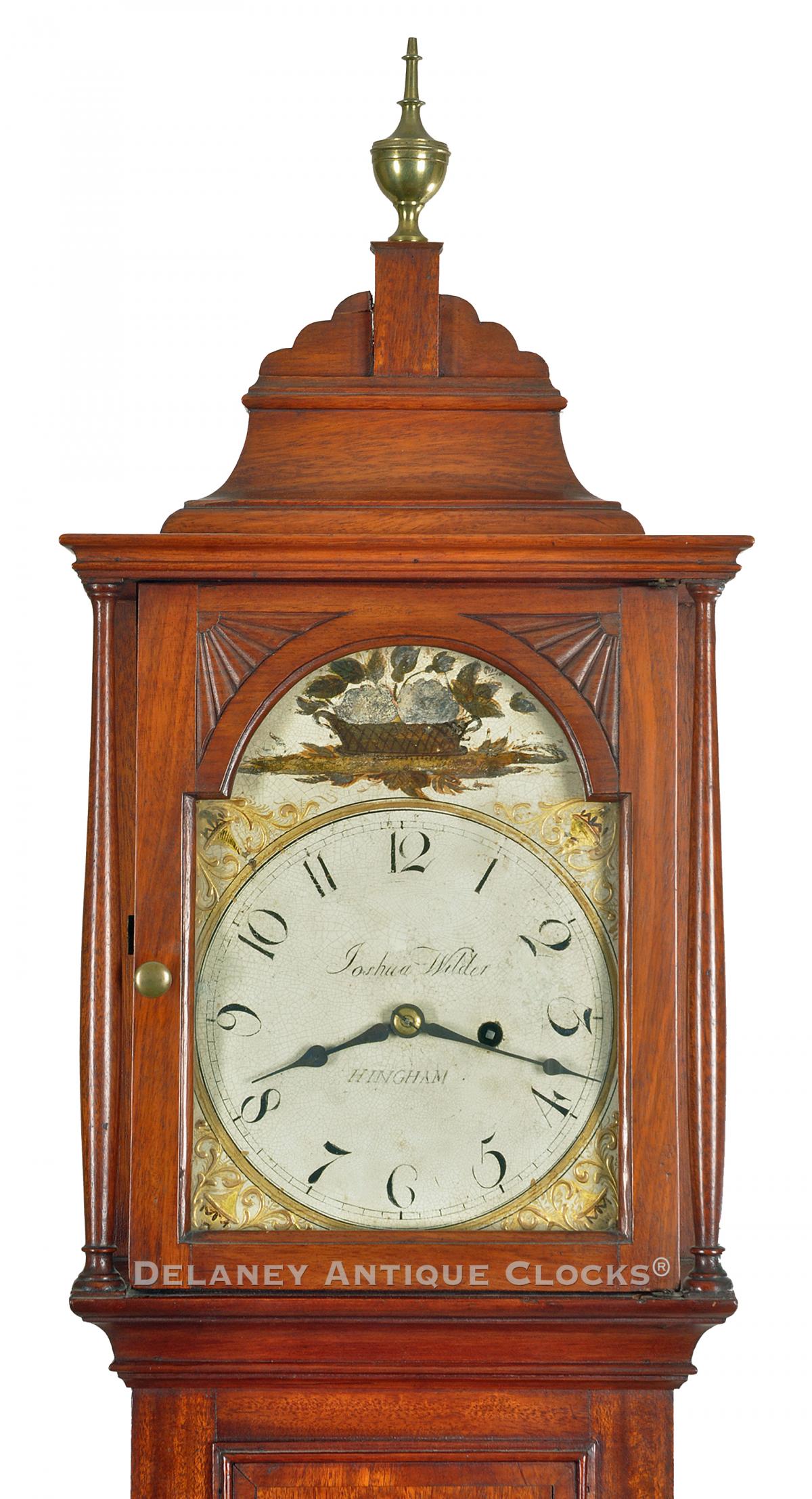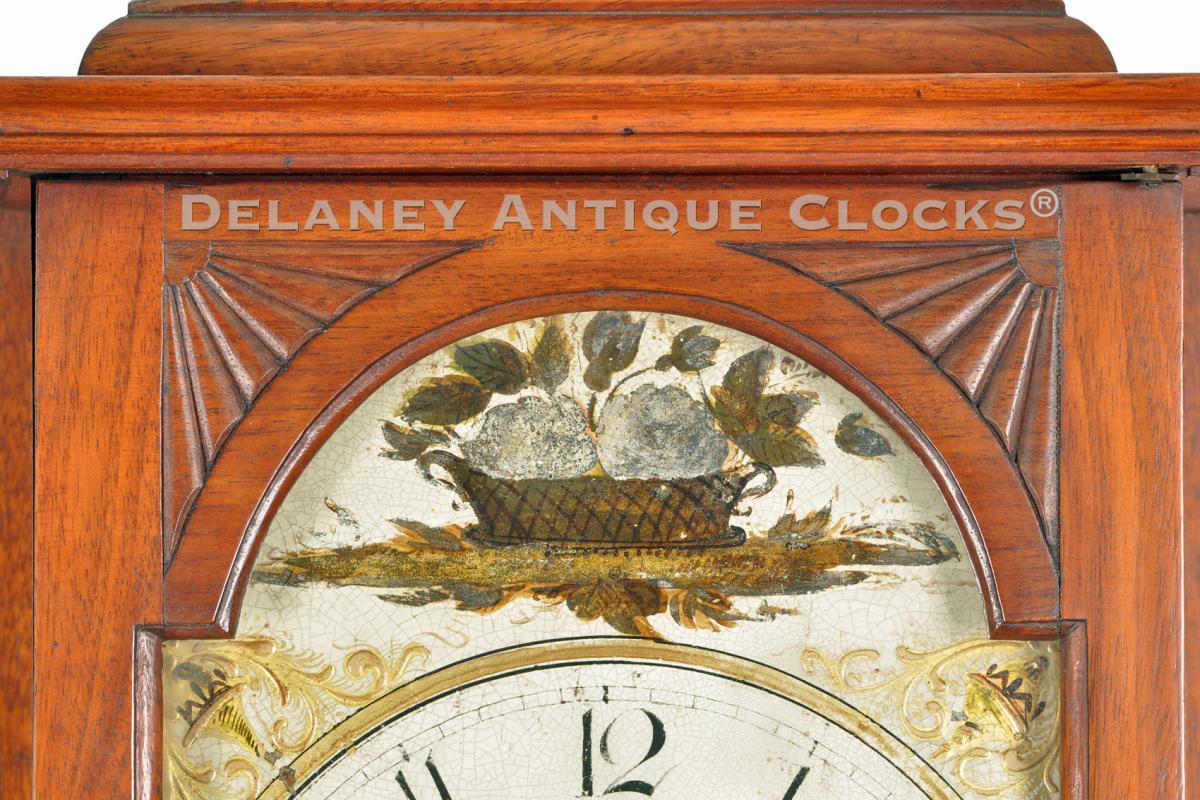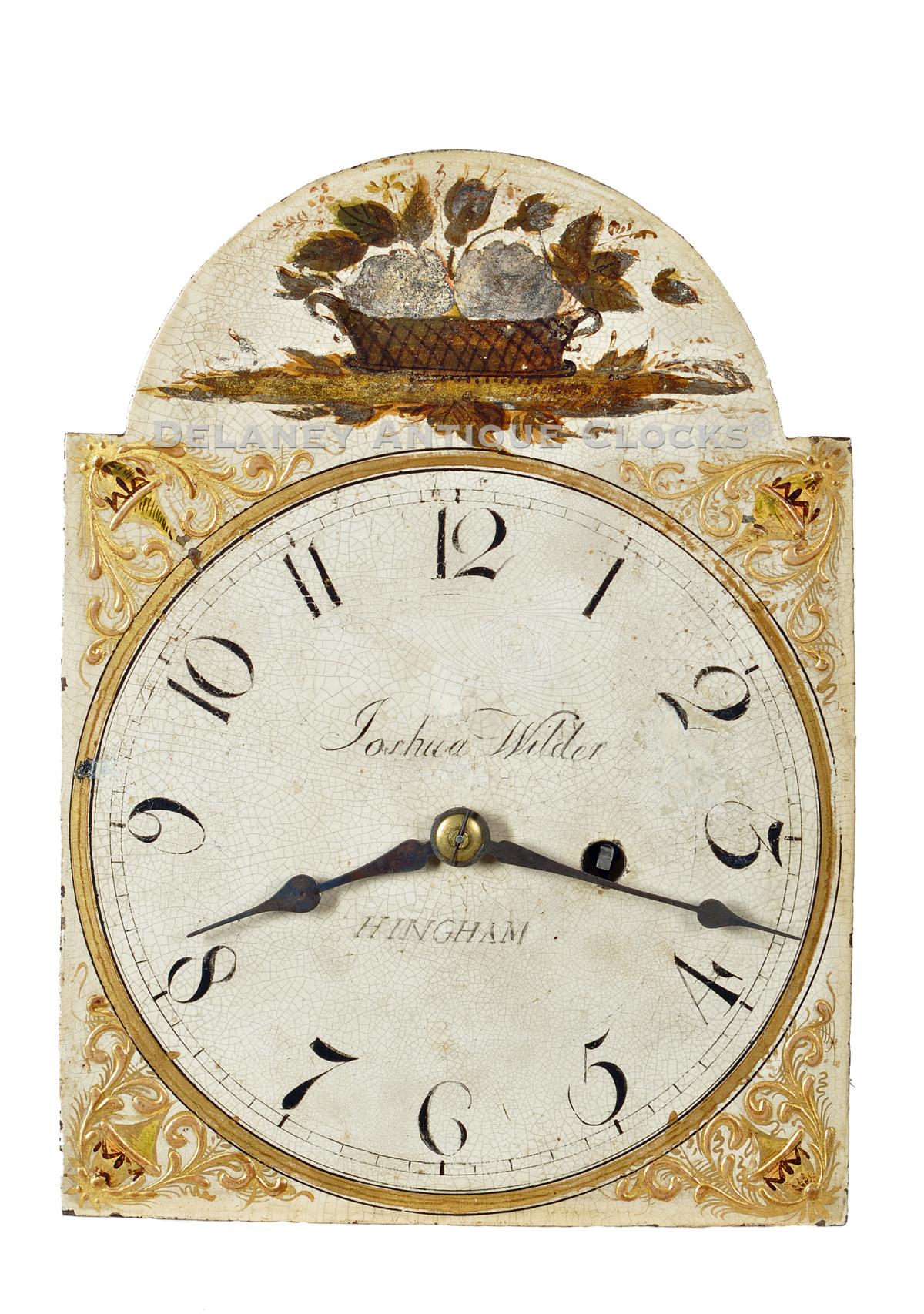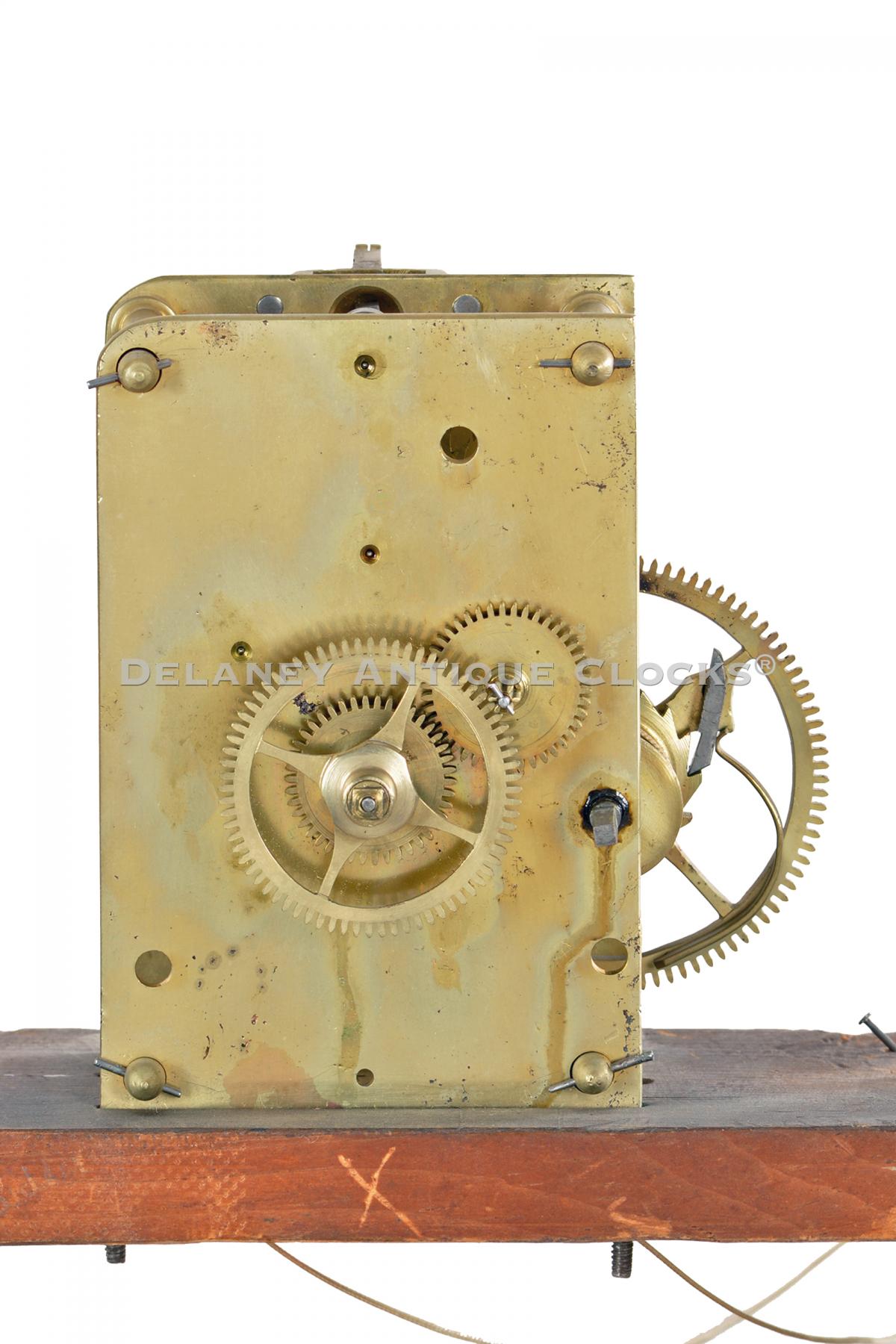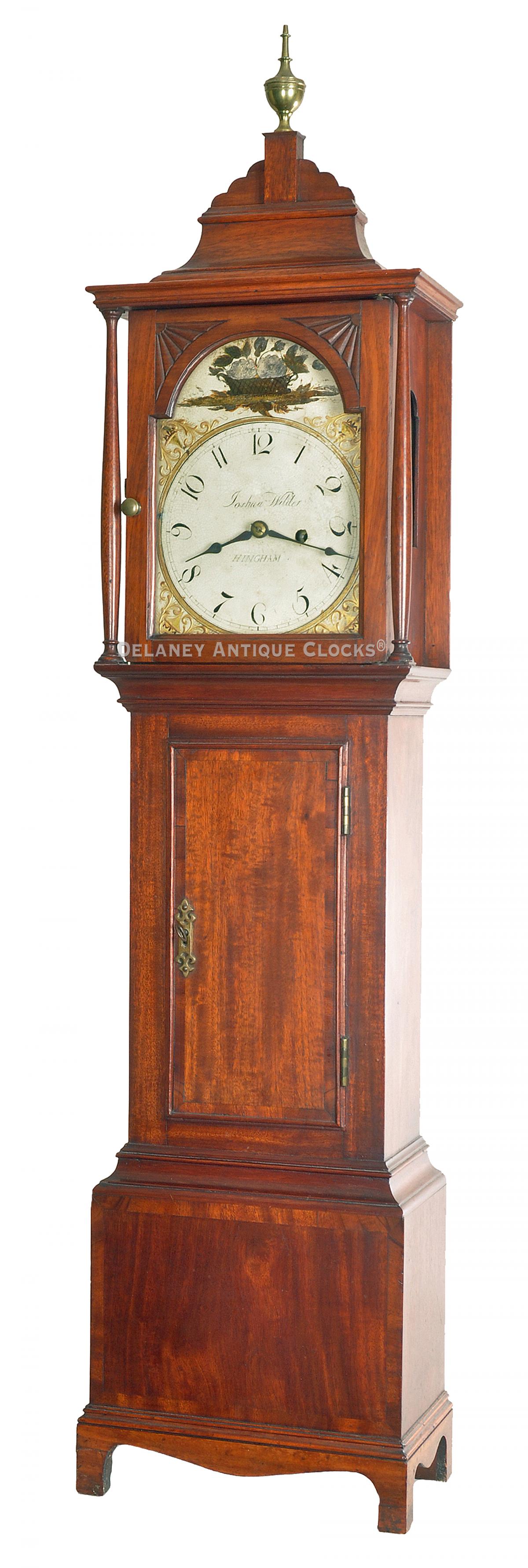Joshua Wilder of Hingham, Massachusetts. A dwarf clock. RR-72.
Joshua Wilder dwarf clocks fall into two main categories. First, he offered a scaled-down version of the standard-size tall clock being produced during the period. These would have arched bonnets or hoods that featured the traditional New England-style open fretwork design. The second form features a flat cornice molding on top of the bonnet surmounted with a decorative molding in the shape of an inverted wall bracket that is applied to the top of the case. These case forms were constructed in both mahogany and white pine, which was most likely paint decorated. It is thought that the vast majority of Wilder cases were constructed by the Weymouth cabinetmaker Abiel White. Wilder and White met early at John Bailey's shop, and their relationship as business associates is now well documented.
This example features mahogany construction. The case sits up on applied bracket feet. These retain their original height and elevate the clock off the floor nicely. A simple drop apron hangs from the center of the base section. The base panel and waist door are cross-banded in mahogany. The waist door is trimmed with and applied molding. It opens to access the interior of the case. The bonnet or hood is fixed solidly to the case. This is the traditional construction of this form. Smoothly turned and subtly shaped bonnet columns flank the hood door. This door features an arched opening that is fitted with glass. The upper corners are decorated with carved fans. The location of the fans is unusual and a great-looking detail. This door opens to allow one access to the dial. The top of the hood is fitted with a large plinth. Incorporated into the design is a single brass finial. Access to the movement is from the back of the case. The backboard of this clock, along with additional secondary wood structures in New England white pine. The backboard opens along its entire length and is actually hinged, as is the custom for this form.
The painted iron dial is signed by the Clockmaker, "Joshua Wilder." The place location of "Hingham" is painted in block lettering. The time track features a closed minute ring, and the hours are marked with large Arabic hour numerals. A gold band separates the decoration from the center section. The four spandrels areas are decorated with raised gesso work highlighted in gilt paint. A touch of red and black help structure the urn forms. In the arch is a large basket filled with flowers. This dial was painted in Boston by Spencer Nolen.
The movement is constructed in brass and is of good quality. This is a time-only example that is designed to run eight days on a full wind and is powered by a cast iron drive weight. The brass-faced pendulum bob is supported by a steel rod that hangs from the back of the movement.
This clock was made circa 1820. The approximate dimensions of the case are 48 inches tall, 11 inches wide, and 6 inches deep.
Inventory number RR-72.
Joshua Wilder was born in Hingham, Massachusetts, on December 2, 1786. He was trained in the art of clockmaking by John Bailey Jr. of Hanover, MA. Wilder completed this apprenticeship sometime around 1807. It appears he stayed in Hanover briefly before moving back to Hingham to establish his home and business on Main Street in the South Parish. Wilder was the first clockmaker to settle in this prosperous town. He found a ready market for tall case clocks, dwarf clocks, wall timepieces, the Massachusetts shelf form, and mirror clocks. Wilder becomes one of America’s most prolific Makers of the dwarf clock form.
Joshua Wilder was active in the local religious Society of Friends. He became known locally as the “Old Quaker Joshua Wilder.” He was also involved with the Temperance Society and Peace Society of Hingham. Wilder’s business eventually evolves into a retailer of common goods. Wilder is said to have trained several Clockmakers, including his son Ezra Wilder, Reuben Tower, Allen Kelley, and Phillip Bennet. About 1840, it is said that his son Ezra joined him in business. Joshua died on October 4, 1860, in the town of Scituate.
A fair number of clocks made by this maker have been found. Many of these are the dwarf form but also include tall case clocks, timepieces, shelf clocks, and mirror clocks in much smaller numbers. Currently, the Hingham Library is displaying a tall case clock he made.


